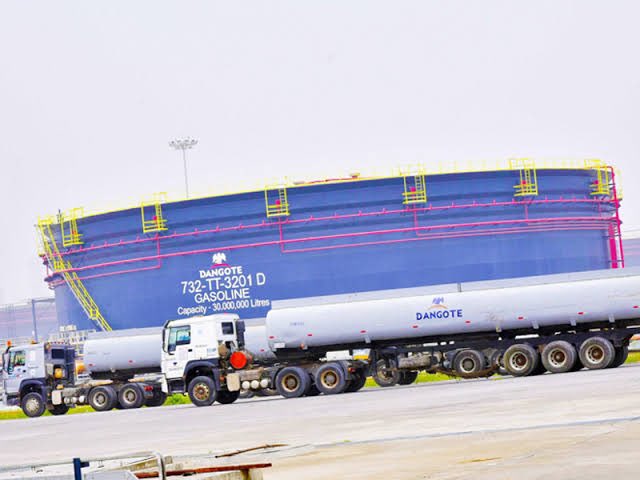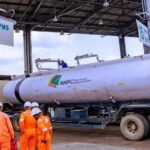The Major Energies Marketers Association of Nigeria (MEMAN) says that its members acquired a total of 148 million litres of petrol from the Dangote refinery during the period from September 16 to November 24, 2024… READ THE FULL ARTICLE.
Mr. Clement Isong, the Chief Executive Officer of MEMAN, shared this information yesterday during a quarterly webinar hosted by the association for energy reporters.
The CEO of MEMAN, during a discussion on “Fuel Pricing,” clarified that although the association’s members hold licenses to import petrol, they have increasingly depended on local supplies from the Dangote refinery. This shift is largely due to the existing competitive market framework.
He mentioned that products taken from the Dangote refinery were delivered to marketers’ facilities in Lagos using both trucks and vessels, emphasizing the adaptability of the supply chain during operations.
Isong presented a comprehensive overview of the volumes lifted over a span of 10 weeks, highlighting that MEMAN members transported 29,468,333 litres during Week 38 (from September 16 to September 22, 2024). This was followed by a total of 20,843,322 litres in Week 39 and 27,236,283 litres in Week 40.
He added, “However, volumes began to decline in subsequent weeks, reaching a low of 1,600,000 litres in Week 46.
“The supply slightly rebounded to 11,596,397 litres by Week 47 (November 18–24, 2024).”
Isong disclosed that this development arose from a directive from the federal government, communicated through the Ministry of Finance. This directive eliminated NNPCL’s intermediary role, allowing independent petroleum marketers to negotiate and buy petrol directly from local refineries, thereby encouraging competition and enhancing efficiency.
He revealed that the spot price of petrol, according to the 30-day pricing trend from October 10 to November 22, 2024, was N976.07 per litre. Additionally, he noted that the average price for that same timeframe was N971.14 per litre.
Isong indicated that the estimated cost of the product per metric tonne was N708,390, which was calculated based on an exchange rate of N1,665.99 to the dollar.
Isong elaborated on the various factors that affect petrol pricing in Nigeria, noting that key cost elements consist of the jetty location, specifically mentioning ASPM, along with a standard product quantity set at 38,000 metric tonnes.
He said, “The pricing methodology relies on the Argus Gasoline Euro-Bob benchmark for West African deliveries, combined with an average premium.
“The exchange rate is derived from the Central Bank of Nigeria’s (CBN) weighted average rate within the Nigerian Foreign Exchange Market (NFEM), which significantly impacts the final price.
“Other local charges include those imposed by the Nigerian Ports Authority (NPA) for services, such as towage, berthage, and cargo handling, as well as contributions to NIMASA at two per cent of local freight and regulatory fees from the Nigerian Midstream and Downstream Petroleum Regulatory Authority (NMDPRA), which add a combined one per cent levy.”…READ THE FULL ARTICLE



